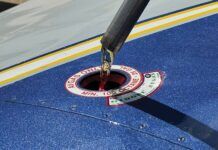Anyone who’s been watching the torturous progress—if it can even be called progress—of the Third Class medical revision can be forgiven for a certain amount of cynicism. Many of us, I think, have given up completely, so much so that earlier in the week, I demurred from even writing about it again. I figured I lacked the discipline to avoid devolving into the predictable spew about the FAA and government regulation. But somehow, I’ve managed to find my bearings, so here goes.
You probably either read about or saw Sen. James Inhofe’s speech before the Senate describing how his Pilot’s Bill of Rights 2 had been modified to make it more palatable to his fellow legislators. It sounded like the thing had been so compromised as to be little changed from the status quo. But that’s hardly the case. If the bill makes it into law, it represents a substantial improvement over the broken medical cert system we have now. More on that in a moment, but first the politics.
Inhofe’s speech was pure civics lesson and an intimate example of watching the sausage being made, if you will. In that sense, he was doing what senators have done for two centuries and exactly as the founders intended; he was horsetrading. For reasons those of us in aviation find absurd, some objections were raised to the original proposal which would have, in general terms, eliminated the need for a Third Class medical for non-commercial operations, VFR and IFR, in aircraft under 6000 pounds. Perfectly sensible. Inhofe’s speech didn’t reveal the exact nature of the objections, but we’ve already reported that the Air Line Pilots Association opposed the bill because it had “grave concerns” about safety, this despite the fact that accident and medical data overwhelmingly show that medical certification exerts no measureable impact on system safety. (Note: brake lights coming on to avoid devolution into a spew…)
So Inhofe agreed to certain amendments to make the bill more acceptable to senators with objections to the original language. AOPA has a FAQ on the bill’s provisions as it currently exists here. Basically, it would work like this: New pilots coming into aviation would need a one-time AME medical exam. While I think even this is a chilling barrier for many potential pilots, it’s an improvement over the existing recurrent requirement.
For those who already hold Third Class medicals—including most specials—if you had a medical during the past 10 years, you’re only required to take an online medical education course every two years and see a physician at least every four years. There’s no need to report the results to the FAA; just make a logbook entry with the doc’s name. Pilots with special issuances for cardiovascular, neurological or psychological conditions may still need to get a recurrent special. That’s a small percentage of both the total pilot population and of special issuances.
I don’t have to drop into spade-a-spade mode to explain how meaningless these revisions are to system safety; we’ve already established that no medical at all is just as safe as a recurrent Third Class, so anything less than that is just pointless government meddling. (Tap brake here…) But never mind. If this bill is passed in its current form, it’s significant progress and while I’m reluctant to christen it a (wince) game changer, I can’t see how it won’t be a meaningful stimulant to an industry that needs all the help it can get. Personally, it would cause me to reinstate my Third Class privileges, which I recently let lapse. I have a special and simply don’t want to bother again.
As for Sen. Inhofe, some of us have issues with him, to be sure. But love him or hate him, he’s done remarkable work to get this bill this far. It has 67 Senate sponsors and 150 in the House. Given the current fractured state of politics in this country, that of itself is an achievement, if no guarantee that the thing will actually pass. Both he and the bill deserve our support. Let’s see if we can use it to generate a little confidence and optimism and retire the hair shirt to the closet.

































